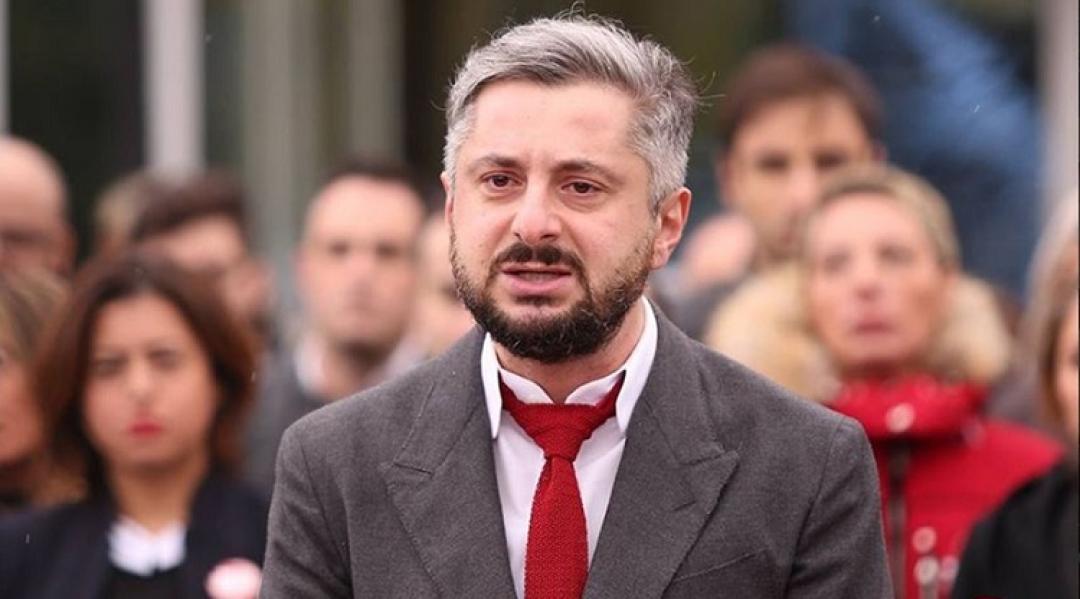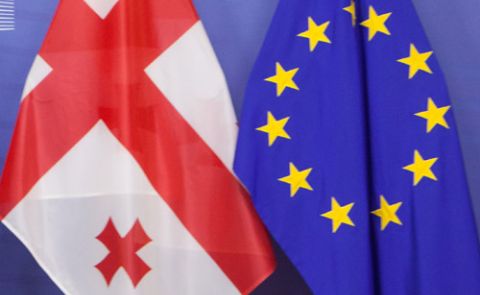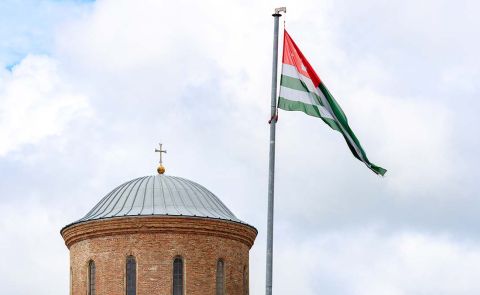
Political situation in Georgia: opposition TV channel speaks against western ambassadors; ISFED admits mistake in election count

On 14 December, the former First Deputy Prosecutor General and the founder of opposition-minded Mtavari TV Nika Gvaramia accused the EU and US ambassadors in the country of anti-Georgian behaviour.
“If I have to go to prison, I will go. It will be an honour now as all the normal people are behind bars and imprisoned by this government. This TV [channel] will not stop. This government will definitely be overthrown, and these ambassadors will apologise for their anti-Georgian behaviour - their facilitation is just a delivery towards their administration as if they have eased the conflict. This is a shame, and this is exactly what is damaging the West. Irakli Kobakhidze, the son of Russia’s official agent and the slave of the Russian project, Bidzina Ivanishvili, should not talk to me about anti-Western behaviour, neither the facilitators, whose work remains vague,” Gvaramia stated.
He believes US and EU Ambassadors to Georgia, Kelly Degnan and Carl Hartzell respectively, should “stop talking about him and other political prisoners” and that they are involved in the trade of the captives and exchange prisoners to satisfy the interests of the ruling Georgian Dream political party. Gvaramia also called for opposition parties not to participate in the ongoing negotiations between the government and the opposition, which are facilitated by the US and EU ambassadors to Georgia.
The German ambassador to Georgia Hubert Knirsch said that he was surprised by Gavramia’s statements. “It's surprising what we hear about diplomats these days, how they argue with insistence and imagination. None of the diplomats offered themselves by force, and this will not happen in the future. We have been addressed again and again by opposition parties in recent years. We were told that they are a pro-Western opposition and we, the diplomats, should help them,” he said.
“Georgia has passed the test of democracy. These elections were not the peak of democratic development in Georgia. Improvement, reforms are necessary. Decisions should be made in Parliament. I have been following this process and I think that these loud attacks on diplomats have exactly this basis. We are witnessing a clash within the opposition,” Knirsch added.
The NATO Secretary General’s Special Representative for the Caucasus and Central Asia James Appathurai also commented on the current political situation in Georgia, implying that it could have a negative impact on Georgia’s NATO aspirations. “Some NATO countries also have very divided political systems, and that is not news to anyone. But having a functioning government, including the sitting and active opposition, is the essence of how the governments in NATO countries operate. We do not have governments boycotted by opposition parties, so the polarisation is first and foremost a problem for Georgia. However, the whole international community would like to see it be diminished between the opposition and the government as soon as possible,” Appathurai stated.
The local Georgian watchdog the International Society for Fair Elections and Democracy (ISFED), who were critical towards the country’s election results from the beginning (Caucasus Watch reported) published the updated information on the final results of the October 31, 2020 parliamentary elections. According to the organisation, a flaw was revealed in the formula for calculating the votes (PVT). As a result of the correction, the percentage of votes received by election entities changed slightly. This difference did not affect the number of mandates secured through the elections by any election entity.
The Executive Secretary of the GD Irakli Kobakhidze said in response to ISFED’s scandalous information that PVT is considered to be “the main mechanism for the verification of the accuracy” instead of the Central Election Commission (CEC) data. Kobakhidze said that “in contrast to previous years,” the PVT results published by ISFED showed “a substantial deviation from the results of the CEC, which became the main basis for the allegation of electoral fraud by the opposition.” Kobakhidze added that “the concurrence of the CEC results and the PVT data once again demonstrates that any talk of electoral fraud amounts to speculation and is a blatant lie.”
The chairperson of Georgia’s Central Election Commission Tamar Zhvania stated that ISFED’s adjusted PVT results “strongly confirm that the official election results have been correct.” Speaking of the accusations, threats and bullying she has faced since 31 October, Zhvania said the delayed information on election results would hopefully change the negative attitudes that have aff
See Also


BP Strengthens Presence in Azerbaijan’s Offshore Energy Sector

Netanyahu’s Letter to Aliyev: Mutual Trust, Solidarity Following Hamas Attacks, Facilitating Dialogue Between Israel and Türkiye

Azerbaijan Expands JF-17 Thunder Fighter Jet Order from 16 to 40 Units

EU Commissioner and NATO PA Warn Georgia Over Democratic Decline Amid Accession Challenges

